“Millennials,” declared Piers Morgan last week, “are a bunch of phone-addicted, selfie-obsessed, hashtagging, snapchatting, kale-munching, twerking, lazy, whining, ill-informed, politically correct, cosseted narcissists who find absolutely everything mortally offensive.” We’re “generation snowflake,” forever on the verge of melting into inchoate rage, or better still, we’re “Stepford students,” the mindless control-freak commies that spell the end of Western civilisation as we know it.
Perhaps it’s best to ignore the hollow polemic of the rent-a-gob but on one thing Morgan isn’t entirely wrong. Our generation is angry: angry that our parents are dragging us out of the EU, angry that they’re electing Twitter-troll-fascists to the White House, and angry that basic rights to healthcare and education, long-enjoyed by Morgan and his generation, are being replaced with privatisation and crippling debt.
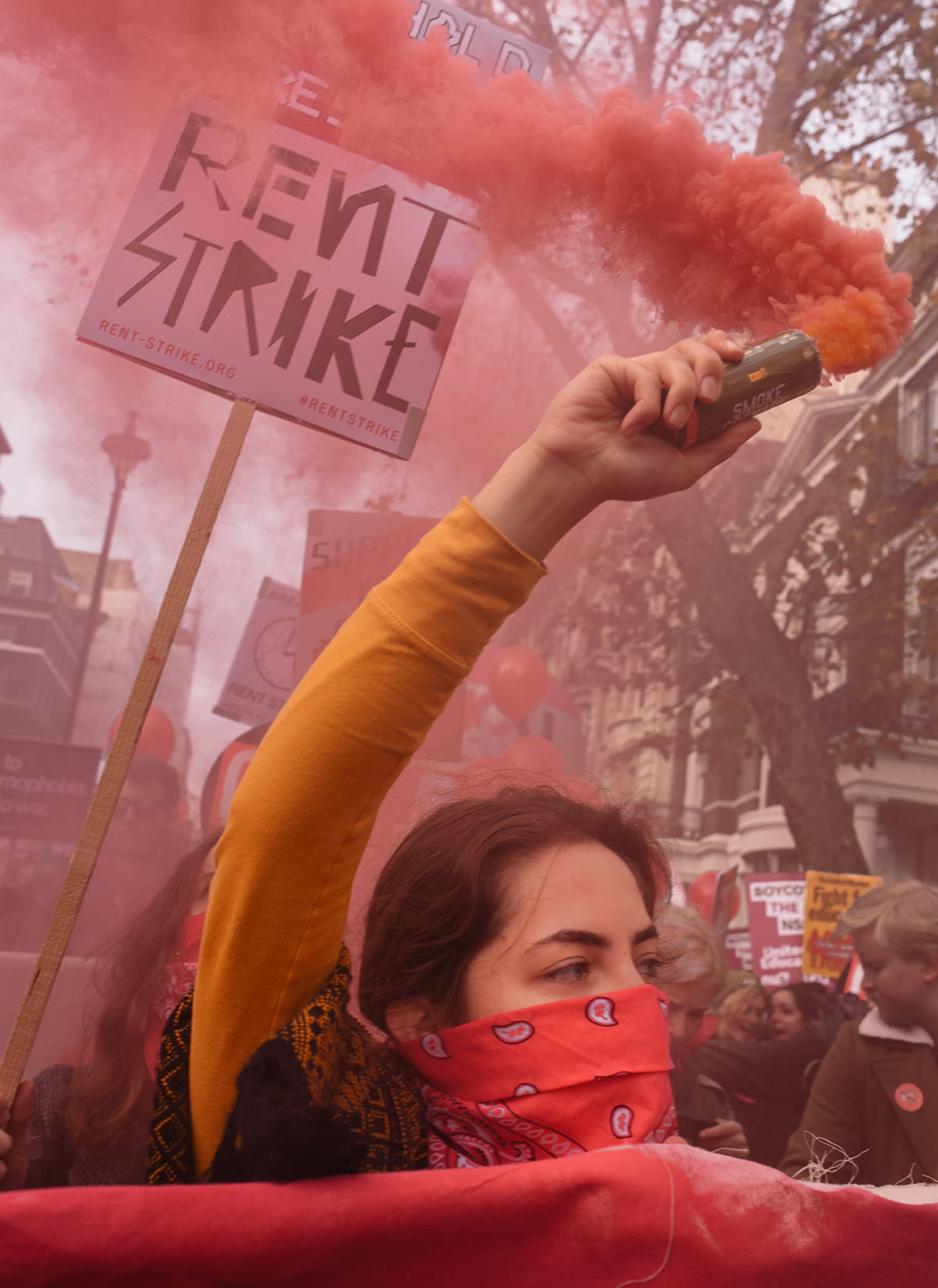
On Saturday November 19th, thousands of protesters gathered on the streets of London to protest government attacks on education. Since 2010, tuition fees have tripled, maintenance grants and nurse’s bursaries have been scrapped, and increasing numbers of academics living precariously on zero hours contracts. Recent investigations by the Guardian have shown that 70% of teaching staff at the University of Birmingham are on insecure contracts, while at Warwick the figure sits at 68%. For the protestors, this amounts to the effective privatisation of higher education in UK, something which will undermine teaching standards and prevent the poorest students applying. Taking particular aim at the Teaching Excellence Framework, which aims to tie universities’ ability to raise fees to their performance, a coalition of activists, students, teachers, lecturers and unionists converged in central London, united for education.
Marching from Park Lane to Parliament, the five-thousand strong march shut down the arteries of the city with a sea of makeshift placards and banners. “This shit wouldn’t happen in Hogwarts,” read one; “the myth of meritocracy can kiss my clit,” read another. Chants of “no borders, no nations, free education” echoed through the streets.
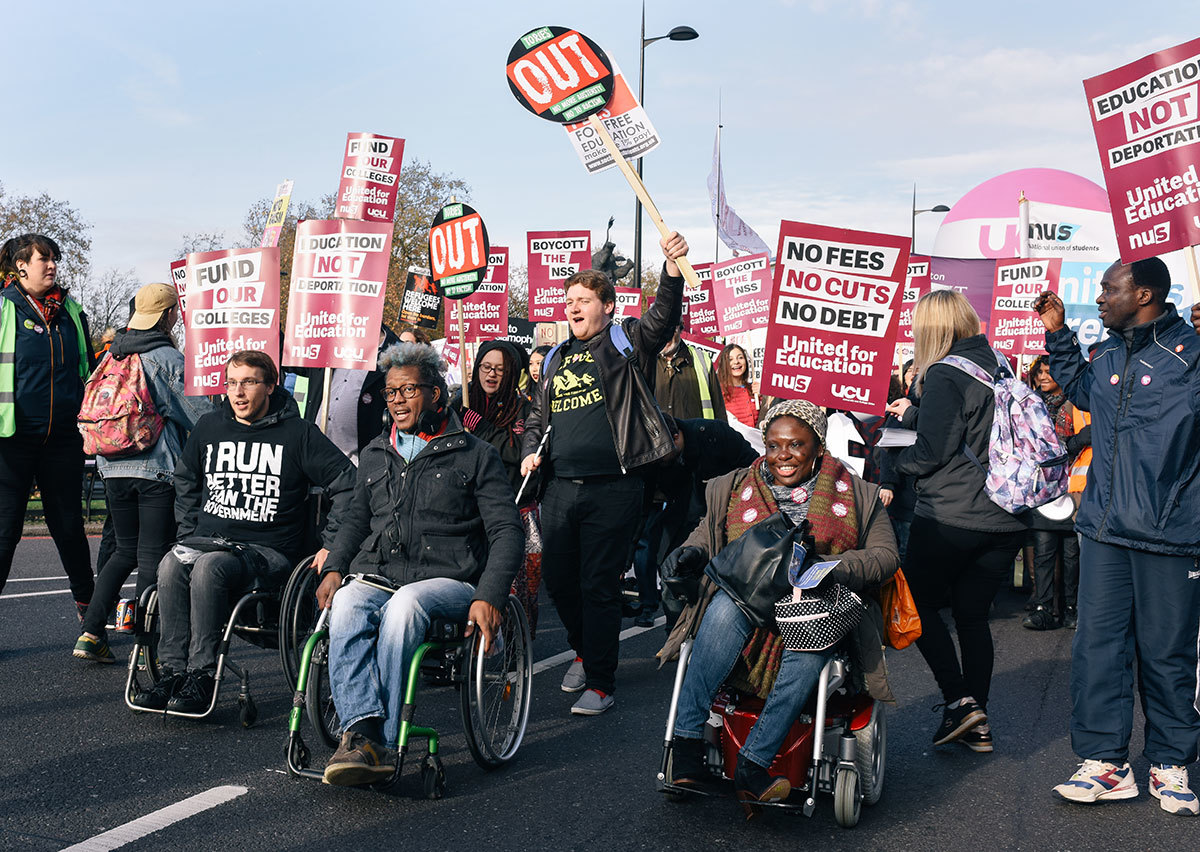
As the march approached parliament, with disabled students leading the charge, flares sent smoke billowing over the crowd while, slightly inexplicably, Missy Elliott blasted out over a set of speakers carried along on what looked like a an ice-cream cart. Around 2pm, the crowds gathered for the final rally, with speeches from National Union of Students executives and the University and College Union members. A pre-recorded message from Jeremy Corbyn – which peculiarly played at double-speed, basically making him sound like a chipmunk on heat – sent cheers reverberating through Westminster.
“We’re here because we’re demanding a halt to the marketisation of higher education,” explained Sophia, a student at LSE marching with a coalition of activists demanding nationwide rent strikes in protest at extortionate living costs. “The recent green paper means that fees are going up while the government withdraws funding. In an attempt to stay afloat, universities are having to increase rents which students cannot afford, while property developers swoop in to make huge profits.”
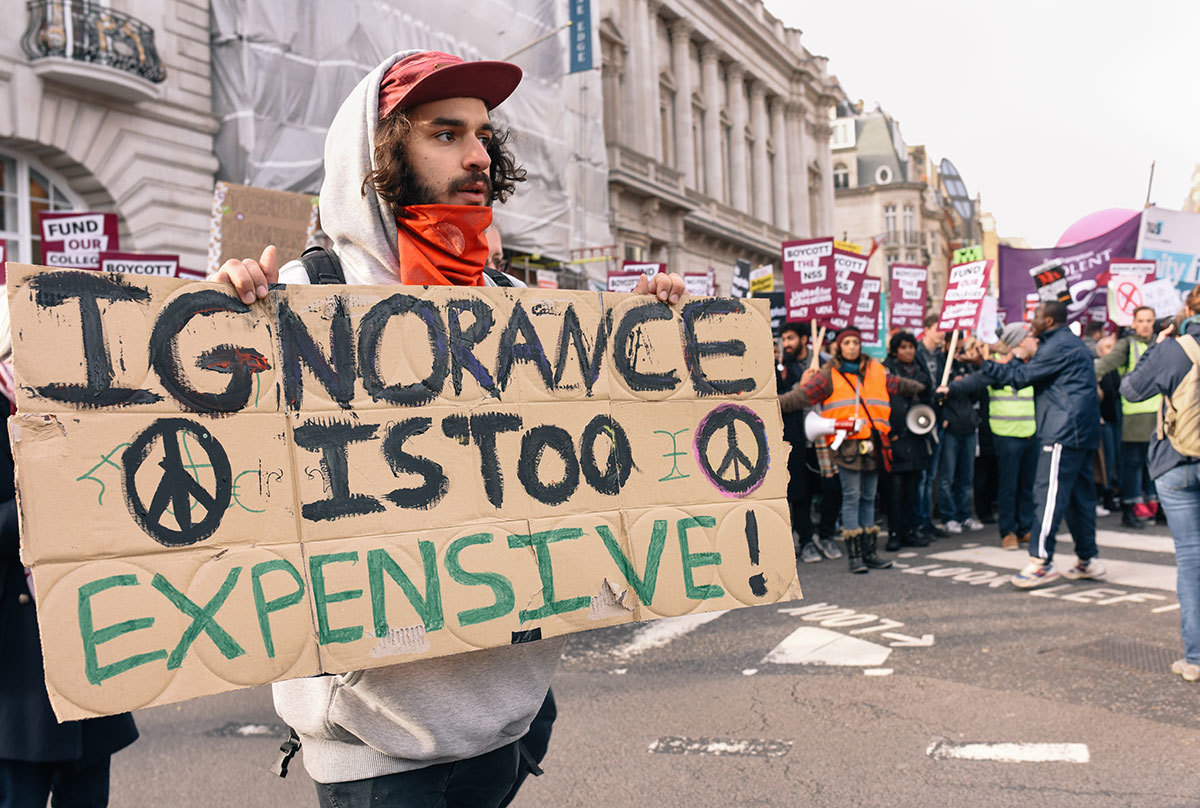
Others echoed her concerns, and spoke of cuts to higher education in the context of the erosion of public services more broadly. “Increasing debt, privatisation, marketisation – this is what’s happening to our society at large. What’s happening to the NHS is happening to the education system,” explained Matt, a PhD student at Oxford. “Our generation is facing increasing rent and debt because of it. Basically, we’re being forced to pay for a crisis that is not of our making. Youth are here demanding a different future.”
The sense that the protest was for more than just tuition fees was reiterated by Aydin Dikerdem, newly-elected Labour Councillor for Queenstown. “We’re ending up with a system whereby the majority of graduates in Tory Britain emerge with huge debts, into low paid jobs with rents they can’t afford,” he explains. “And it’s not just students that are suffering; long hours, low pay and increasing managerialism has created a huge teaching shortage. England’s schools are now experiencing the largest real term cuts in funding for more than a generation. Young people are the future, I fear the impact these disastrous policies will have.”
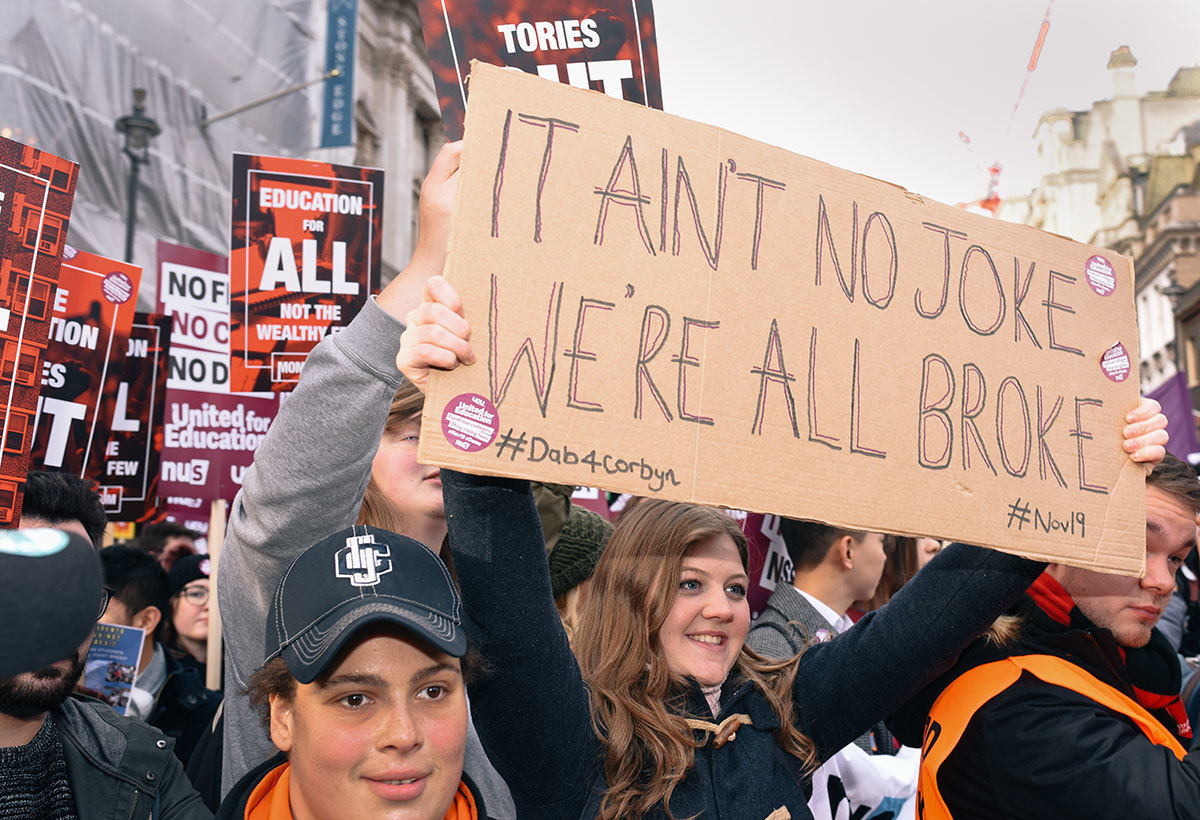
The diffuse aims of the protest sometimes muddied the message, but for many, the rise of populist demagogues from Farage to Trump were proof that defending education is more than simply the defence of a few years of pot noodles and cheap weed, it’s a foundational requirement for an informed electorate and a functioning democracy. The fight against tuition fees has metastasised into something much larger, much more interdisciplinary, and much more urgent: it’s about rent, the precarity of academia, the privatisation of the university system, cuts to FE colleges, and, most urgently since the EU referendum, the plight of international students facing astronomical fees and a Home Office intent on their deportation.
“This is about the future,” said one balaclava-clad protester, “we’re demanding alternatives, and we will be heard.”
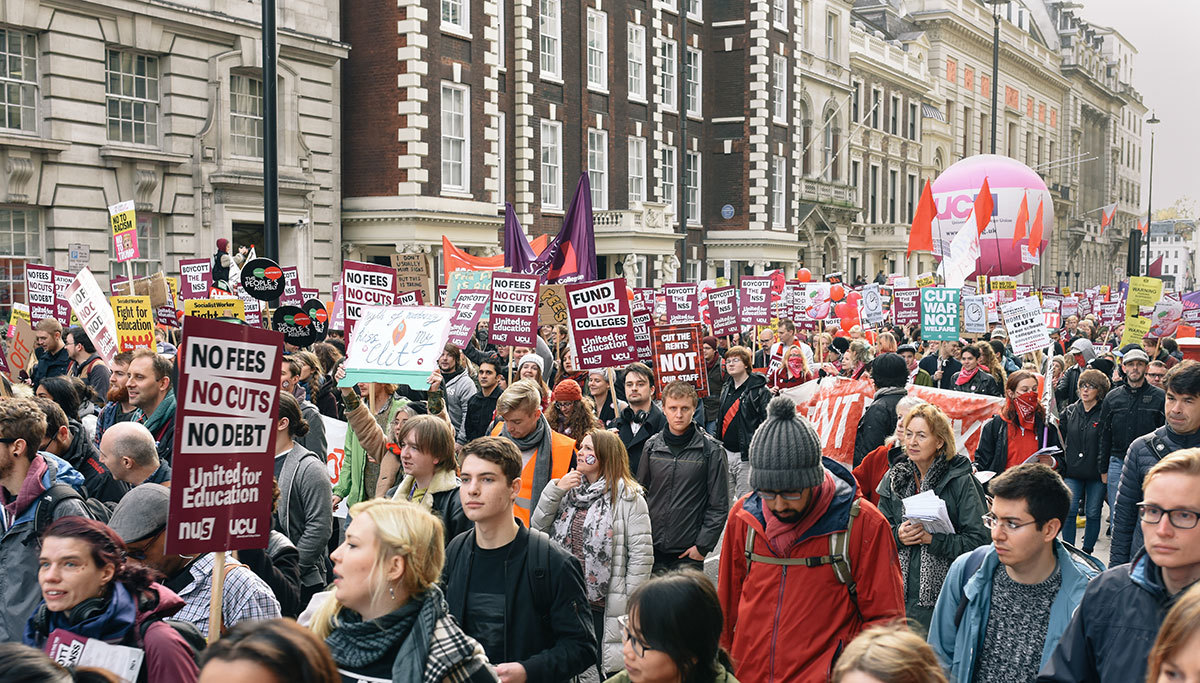
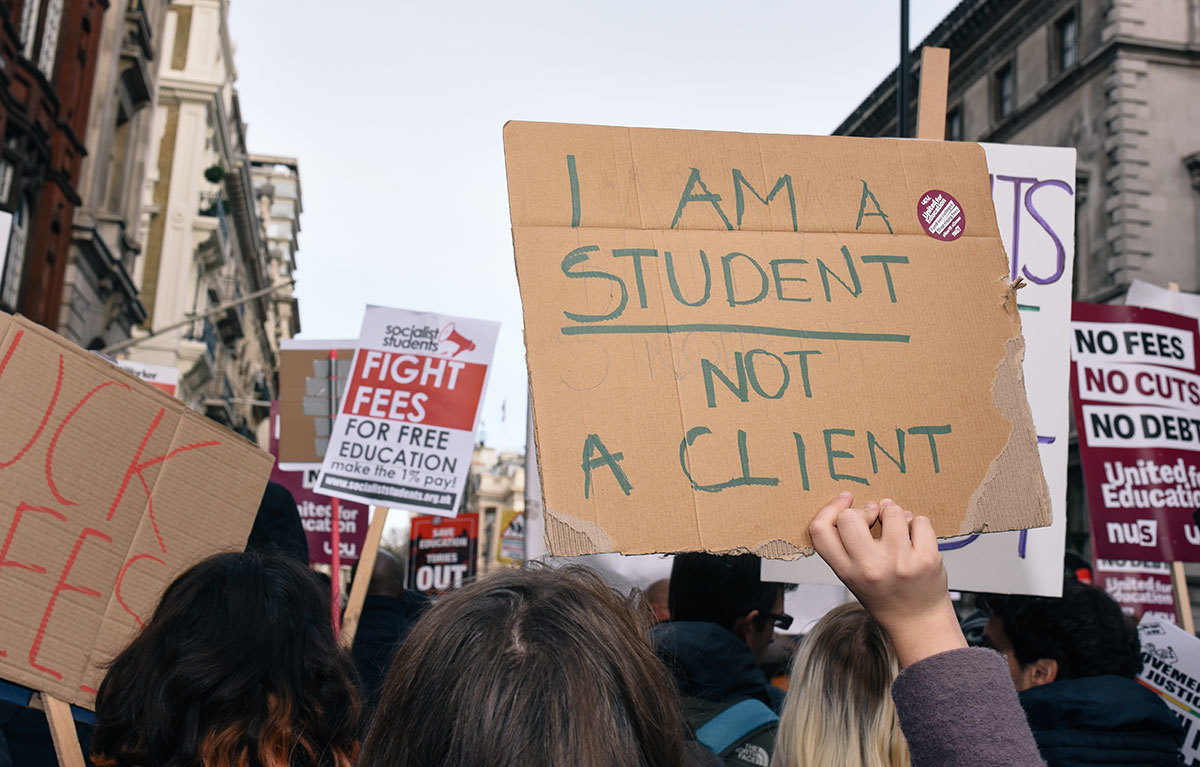
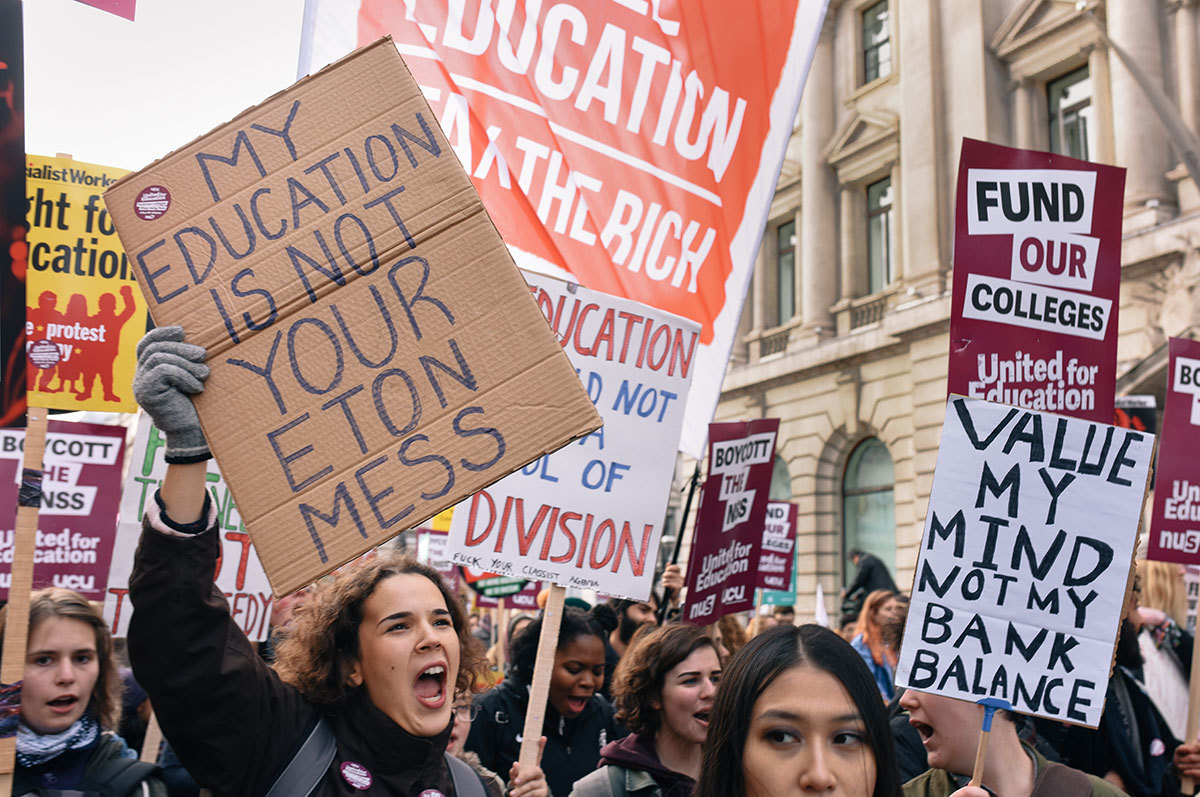
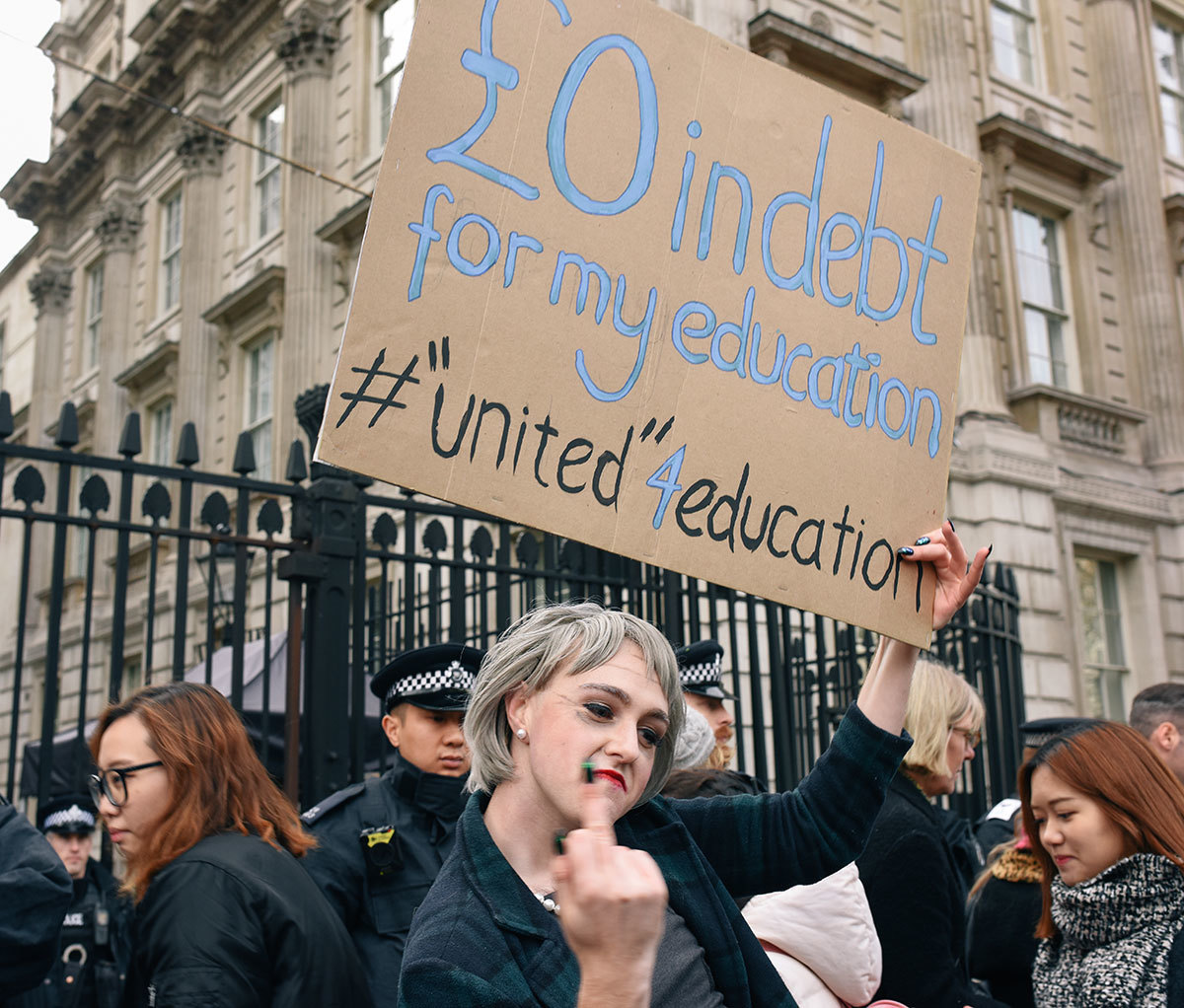

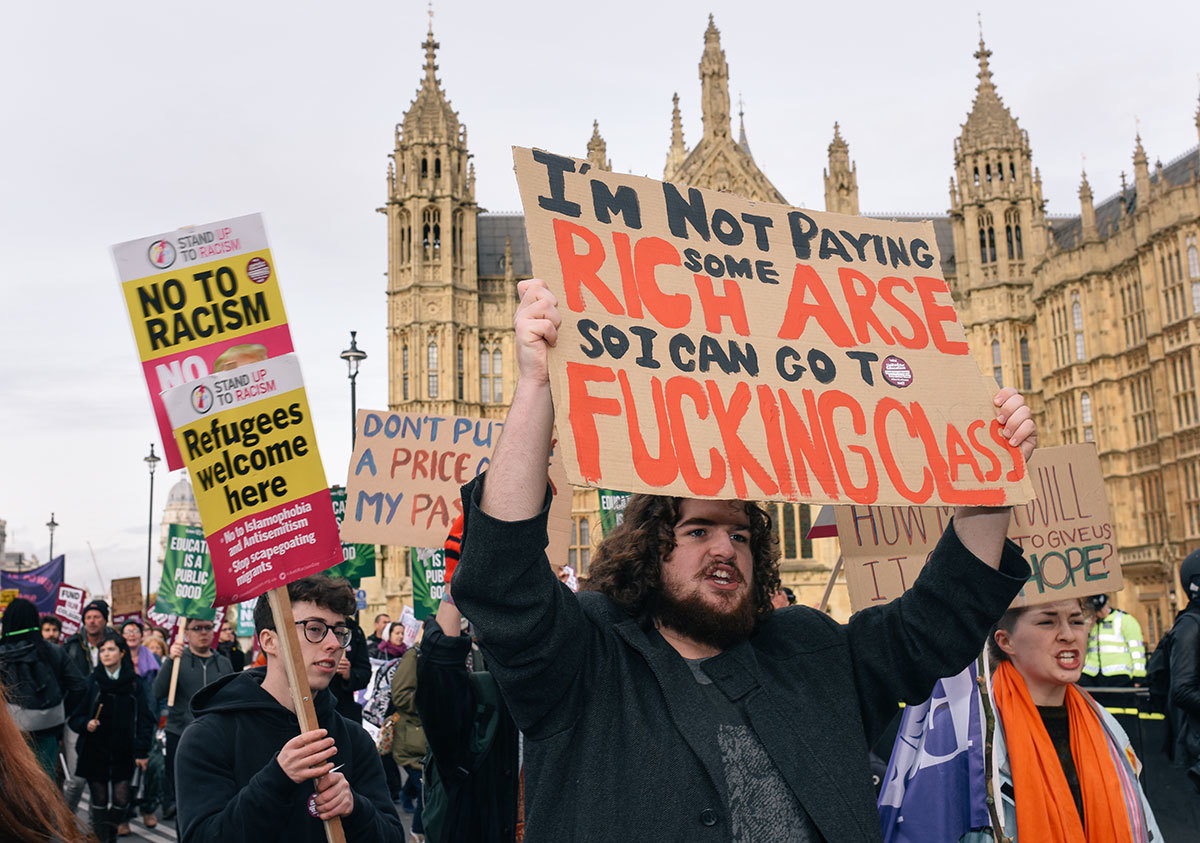
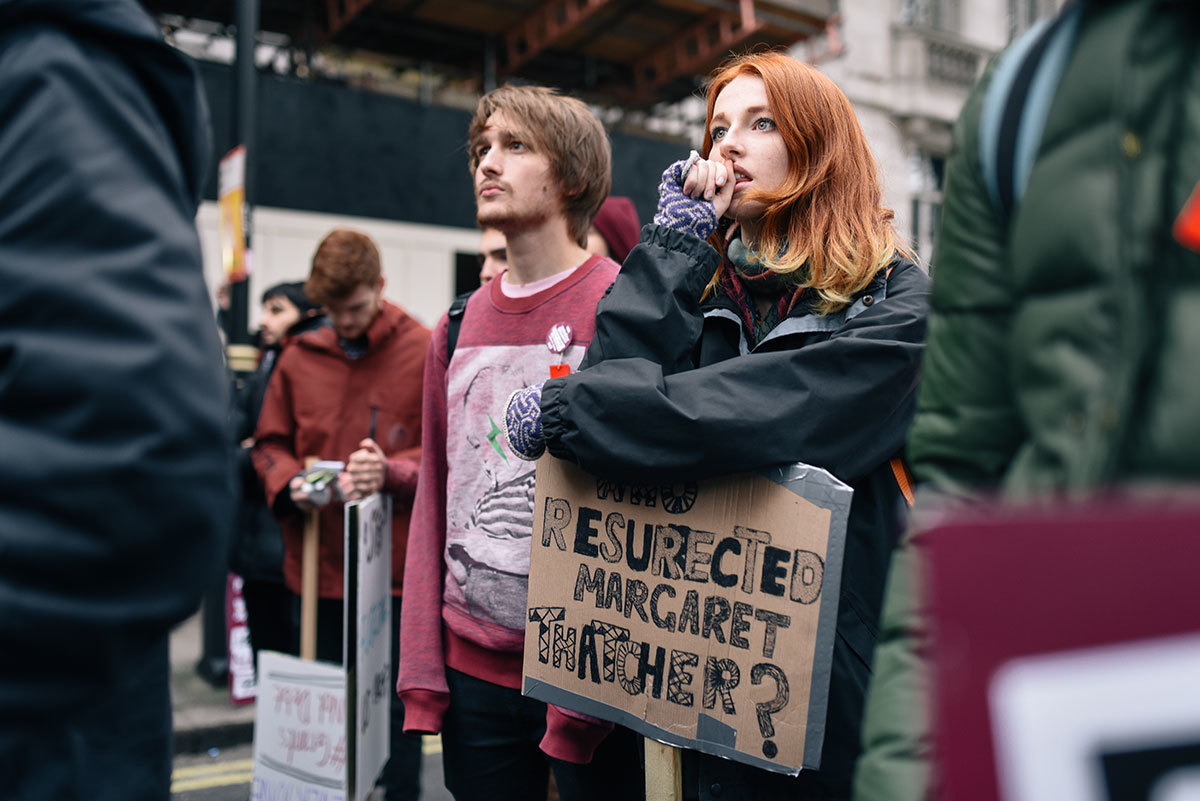
Credits
Text Edward Siddons
Photography Jacob Sacks-Jones
